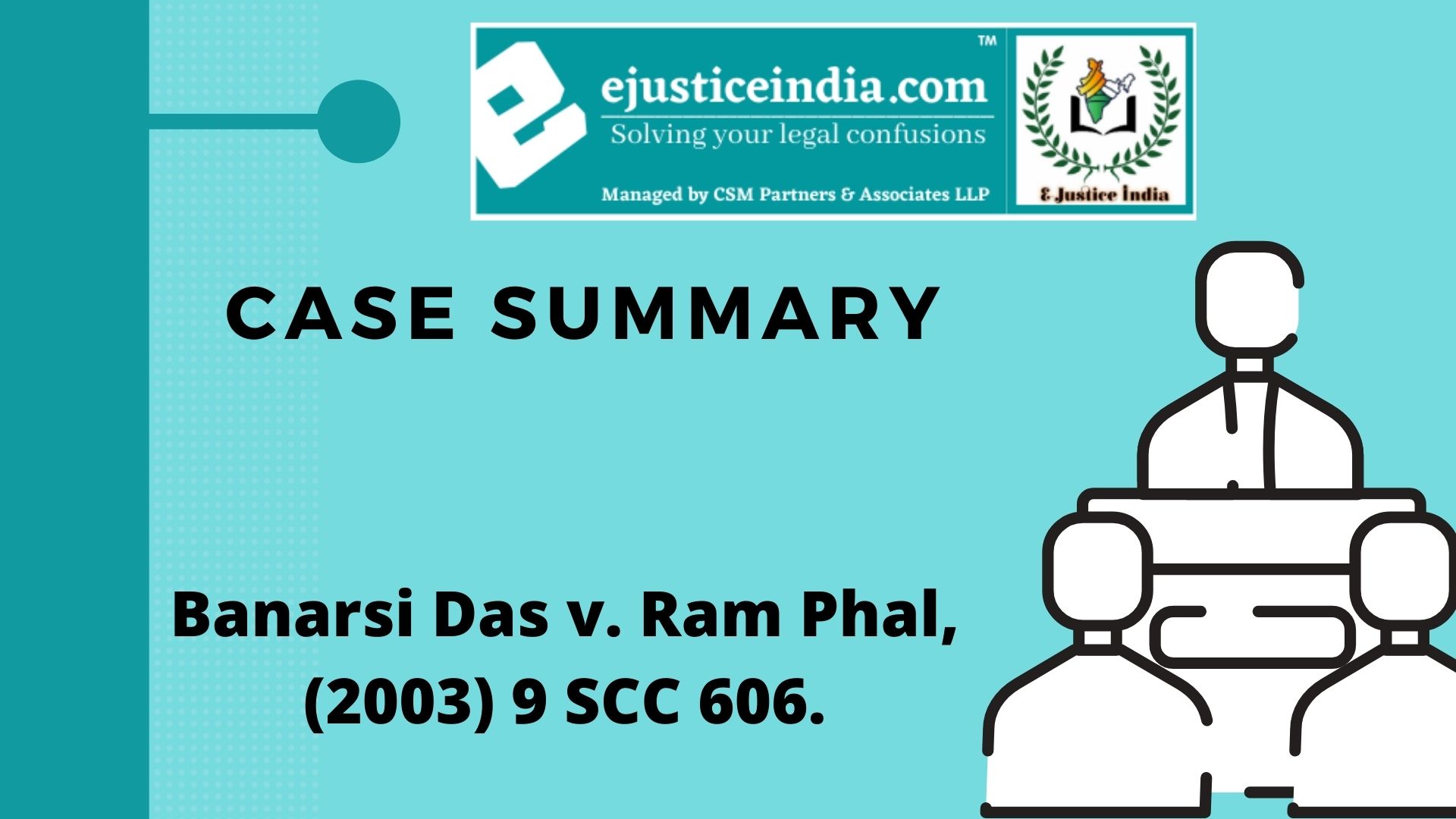P. Rathinam vs. Union of India: Case Summary
Author: Mayank Raj
Case Name: P. Rathinam vs. Union of India
Citation
1994 AIR 1844, 1994 SCC (3) 394.
Bench
B.L.Hansaria and P.M.Sahai.
Introduction
In the case of P.Rathinam vs. UOI the petition were filed in the court for the constitutional validity of Section 309 of IPC it states that whoever attempts to commit suicide and does any act towards the commission of such offence shall be punished with simple imprisonment for a term which may extend to one year or fine or both. Moreover, Is Section 309 of IPC is unconstitutional for the violation of Article 14 and 21 of the constitution of INDIA. The main issue that has been dealt by the Supreme Court repeatedly is that whether or not right to life guaranteed under Article 21 of the Constitution of India includes in it a right to not live a forced life and consequentially, a right to die. The point is that if right to die were included under Article 21 then attempt to suicide would get the sanction as a fundamental right. It has been held by various judgments of the Supreme Court14 and Article21, that any law, which is taking away a fundamental right, is void.
Facts
Gandhi Ji once observed, “death is our friend, the trust of friend. He delivers us from agony. I do not want to die of a creeping paralysis of my faculties a defeated man.”
English poet William Henly wrote: “I am the master of my fate. I am Captain of my soul.”
In the fact of the case was that a petition was filed in the SC regarding the validity of the Section 309 of IPC. First the SC goes to the cases and judgment of the High Court who gave the decision on the regarding the Section 309 of IPC while giving the decision on the validity of Section 309 of IPC.
In the State vs. Sanjay Kumar Bhatial, the Delhi High Court states that judgment that Section 309 of IPC remain in the penal code. It also states that the section 309 of IPC is unworthy of human society. Also states that medical clinics for such social misfits but not police and prison never.
In the Maruti Shripati Dubal vs. State of Maharashtra, the Judge states that quashed the section 309 of IPC because of ultra virus it said that it violate Article 14 and 21 of the constitution which make it unconstitutional and give the reason regarding Section 309 of IPC why unconstitutional and the four reasons are:
(1) Neither academicians nor jurists are agreed on what constitutes suicide, much less attempted suicide.
(2) Mens rea, without which no offence can be sustained, is not clearly discernible in such acts.
(3) Temporary insanity is the ultimate reason of such acts, which is a valid defense even in homicides.
(4) Individuals driven to suicide require psychiatric care.
In the Chenna Jagadeeswar vs. State of AP, the Court held that appellants under Section 309 is inter alia, on the ground of the section being violative of Articles 14 and 21 of the Constitution, the Bench stats that the section was valid, as it does not offend any of these articles. In addition, the Bombay decision was overruled the reason was given by Bombay high court.
The broad criticism regarding these is faced by is-
- The act suicide is against the religion.
- It is an unethical act
- Sociological effects will b adverse in the society.
- It is against the public policy.
- Damages the monopolistic power of the state.
- It would encourage aiding and abetting of suicide and may lead to constitutional.
Issue of the fact
- Whether the Article 14 and 21 violate the rights regarding sec 309 of IPC.
- Has Article 21 any positive content or is it merely negative.
- Section 309 of IPC should hold unconstitutional.
Judgment
The Honorable SC of India held the judgment regarding the case P. Rathinam vs. UOI. It states that that section 309 violates Article 21, and so, it is void. It also said by the SC that the view taken by us would advance not only the cause of humanization, which is a need of the day, but of globalization also erasing Section 309, we would be adapting this part of our criminal law to the global judgment.
Section 309 of IPC is unconstitutional because it violates the Article 14 and 21.


